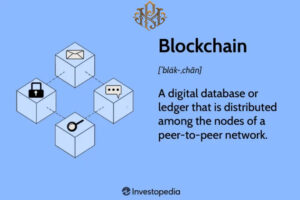
Close



Originally introduced as the underlying architecture for digital currencies, blockchain technology has rapidly spread its influence across various industries. While blockchain is praised for its transparency, security, and decentralized nature, it is not without its challenges. In this article, we examine the pros and cons of blockchain and the key aspects that have shaped its adoption and continue to influence its evolution.

One of the most popular benefits of blockchain is its decentralized nature. Traditional systems often rely on a central authority, making them prone to points of failure. In contrast, blockchain distributes data across a network of nodes, reducing the risk of tampering or unauthorized changes.
Blockchain uses advanced cryptographic techniques to secure transactions and data. The immutability of data blocks, together with consensus mechanisms such as Proof of Work (PoW) or Proof of Stake (PoS), ensures a high level of security against fraud, hacking and unauthorized access.
The transparent, append-only nature of blockchain ensures that once data is added, it cannot be changed retroactively. This transparency fosters trust among users as they can trace the entire history of transactions or data inputs, promoting accountability and reducing fraud.
Blockchain can simplify processes by eliminating intermediaries and automating tasks through smart contracts. This not only reduces costs, but also increases the speed of transactions, especially in financial and supply chain applications.
The elimination of intermediaries, along with the automation of processes, helps to significantly reduce costs. Blockchain’s decentralized structure minimizes the need for third-party verification, leading to more cost-effective and efficient operations.

One of the main drawbacks of blockchain is its scalability limitations. As the number of transactions increases, some blockchain networks may experience slower transaction speeds and higher fees. This scalability challenge is a critical consideration for widespread adoption, especially in high-volume use cases.
Blockchain networks that use proof-of-work consensus mechanisms, such as Bitcoin and Ethereum, are criticized for their high energy consumption. The mining process requires significant computing power, leading to environmental concerns and debates about the sustainability of blockchain technology.
The lack of standardized regulations creates challenges for the widespread adoption of blockchain. Regulatory uncertainty can hinder institutional participation and investment, as businesses and governments are wary of the regulatory and compliance landscape.
While blockchain’s immutability is a strength in terms of security, it can also be a weakness in the event of an error. Once a transaction is recorded, it cannot be reversed, potentially leading to complications in cases of fraud, user errors or disputes.
Blockchain technology is complex and its adoption requires a steep learning curve. A lack of understanding and education about blockchain can hinder widespread adoption, as businesses and individuals may be hesitant to adopt a technology they do not fully understand.
Blockchain technology offers countless benefits that have the potential to change industries and increase the security and efficiency of various processes. However, to foster a more inclusive and sustainable blockchain ecosystem, we need to recognize and address its current limitations and challenges. As the technology continues to evolve, finding solutions to scalability issues, reducing energy consumption, and establishing regulatory frameworks will be critical in unlocking blockchain’s full potential across sectors.